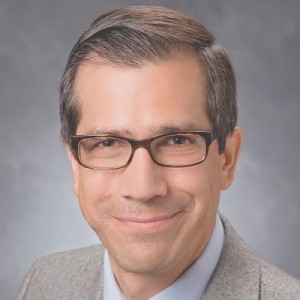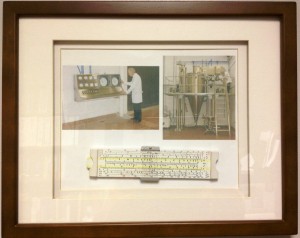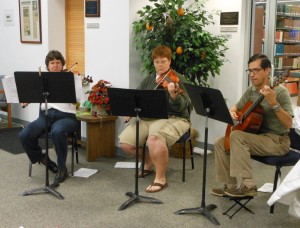
Name: José Reyes-De-Corcuera
Job title:
Associate Professor and Undergraduate Coordinator
Company:
Department of Food Science and Technology, University of Georgia
Highest Level of Education/Degree:
Ph.D., Engineering Science, Washington State University
What does your schedule look like today?
This semester has been particularly busy because I am teaching two courses that I had not taught in the past. I woke up around 5:30 am and brewed a cup of coffee. I checked my e-mail and the weather while the rest of the family is still asleep. After breakfast, I took my son to school and arrived at the department right before 8 am. I prepared for class (FDST 2010, Food Issues and Choices), went through my slides and lecture plan before starting class at 9:30. After class I came back to my office and responded to e-mail. I typically eat lunch in my office and continue working. In the afternoon I met with my undergraduate research students. We are developing a citrus based carrier system for phytosterols (nutraceuticals). Because my lab is being renovated, we are “research nomads” going from one lab to another and spend a fair amount of time at the pilot plant. The rest of the afternoon I will work on scheduling new courses for next fall and preparing for my Wednesday class: FYOS 1001, Chocolate Science, and this interview. One of the best times of my week is when I meet with all my graduate students as a team, but that isn’t until Friday.
How did you go about finding your current job?
The short answer is: I saw the job advertisement in Food Technology Magazine. I think it is worth mentioning that I joined UGA only 5 months ago. Finding job ads is easy. Getting the job is another story. I started my career as a chemical engineer. For two years I worked as a project engineer and project manager for an engineering firm in Mexico City. That company designed, built, and automated processing plants for the beverage industry. I participated in the construction of Coca-Cola bottling plants, dairy plants, and part of a brewery. That is what triggered my interest in the food industry. However, I continued my education in engineering when I got a Fulbright scholarship to do my M.S. in Chemical Engineering at Washington State University. Inspired by my advisor, I decided also to pursue a Ph.D. at the Department of Biological Systems Engineering developing amperometric enzyme biosensors. After graduating, I found an advertisement, also in Food Technology magazine of an opening for an Assistant Professor at the University of Florida, Citrus Research and Education Center in Lake Alfred, Florida. I spent 8 years there doing multidisciplinary research at the interface between citrus production and juice processing. I had projects related to metabolomic profiling of plant pathogens and rapid detection of foodborne pathogens. I also did research on enzyme stabilization under high hydrostatic pressure for flavor production and juice clarification. Throughout my career, I have taught a little and realized that I really wanted to do more teaching and become more involved in food science and engineering education programs. I believe my love and passion for education contributed a lot to get my current job.
Who do you think is the most influential person in your field?

Carlos Reyes-De-Corcuera
I do not think I can answer this question. First, because I work in more than one field of research, and second because I do not have a good instrument to measure influence. What I can give you is a short list of some individuals who have influenced my career. My dad, Carlos who was a renowned chemical engineer in Mexico who went to work until age 79 and continued to design equipment until one week before he passed away. My M.S. and Ph.D. advisor, Dr. Ralph Cavalieri, currently VP for Advancement & External Affairs at Washington State University, showed to me with impeccable integrity and dedication what doing research and teaching at a land grant university is about. Dr. Joe Powers, also at WSU, taught me a lot about enzymes and preached by example the importance of caring about students. Dr. Paul Singh, at University of California Davis, inspired me with his Introduction to Food Engineering book years before I met him and with his remote and virtual laboratories. Dr. Geoffrey Puzon, an environmental microbiologist currently working at the CSIRO in Perth, Australia, initiated me to the world of metabolomics. Dr. Bob Braddock (now retired), Dr. Art Teixeira and Dr. Renée Goodrich all mentored me during my tenure track at the University of Florida. Today, Rob Shewfelt who I replaced as undergraduate coordinator at UGA has influenced tremendously my teaching leaving a legacy of excellence in undergraduate teaching and advising.
When are you most inspired?
When I listen to great teachers, and when I pray.

José Reyes String Trio
If you could know one thing now, that you didn’t know then, what would it be?
What was going to happen to the housing market in Florida! Ha, ha, ha. I still have a house there that is worth 2/3 of what I paid for.
Why should I join the Education, Extension, and Outreach Division or the Food Engineering Division?
If you are a member of IFT you should join at least one of its divisions because they are the forums where you meet students and professionals with whom you can network around a particular point interest within the vast domain of food science and technology. The divisions contribute in many ways to growth our profession and our society. Among other things, they sponsor symposia, disseminating new knowledge and assemble some of the most brilliant and productive food science professionals. I am a member of two divisions, Food Engineering and Education, Extension, and Outreach.
The Food Engineering Division gathers mostly engineers from multiple disciplines, all focusing on food processing. Although many of our active members are from academia, there are several industry partners. Non-engineer members are welcome to help us thinking out of the box and better serve the food processing industry. Food Engineers, focus mostly on unit operations, processes, and equipment design. In contrast, Food Scientists focus on the product (chemistry, microbiology etc.) that is being processed. Through collaborative work these dimensions of our profession are effectively integrated.
Whether a student, faculty or professional in industry, you are impacted by education programs. If you are a student, this is a forum for you to comment on your experience and learn about how teaching and learning is done at other institutions. If you are a graduate student planning to become a professor, our education, extension, and outreach division is perhaps the largest pool of food science educators willing to share of their experience and assist you when you transition to that job in academia. If you teach food science or food processing and engineering courses, our division provides a place for networking, brainstorming, and working together on the continued improvement of our programs. Last for certainly not least, if you work in industry and finds that food science graduates could be better prepared to face new (or old) challenges, the education division, our division is the place to voice such insights and trigger the modification of undergraduate programs. You can also can learn about existing continuous education opportunities. The Education, Extension, and Outreach Division members are faculty both US and international. We all care about continued improvement of food science education in all its dimensions.
The most valuable thing I can do to further my research/career as soon as I finish reading this interview is:
Continue networking with some of my new colleagues at the University of Georgia.
What is your favorite food?
Grilled steak (medium-rare) and Neapolitan flan






Thank you for this great interview Dr. Reyes-De-Corcuera! You clearly have a lot of passion for your field and I thought your story was very interesting. I’m sure you inspire a lot of students and we definitely need great teachers like yourself for the future students of food science.
Dear Thomas,
Thank you for your very kind comment. Best wishes!